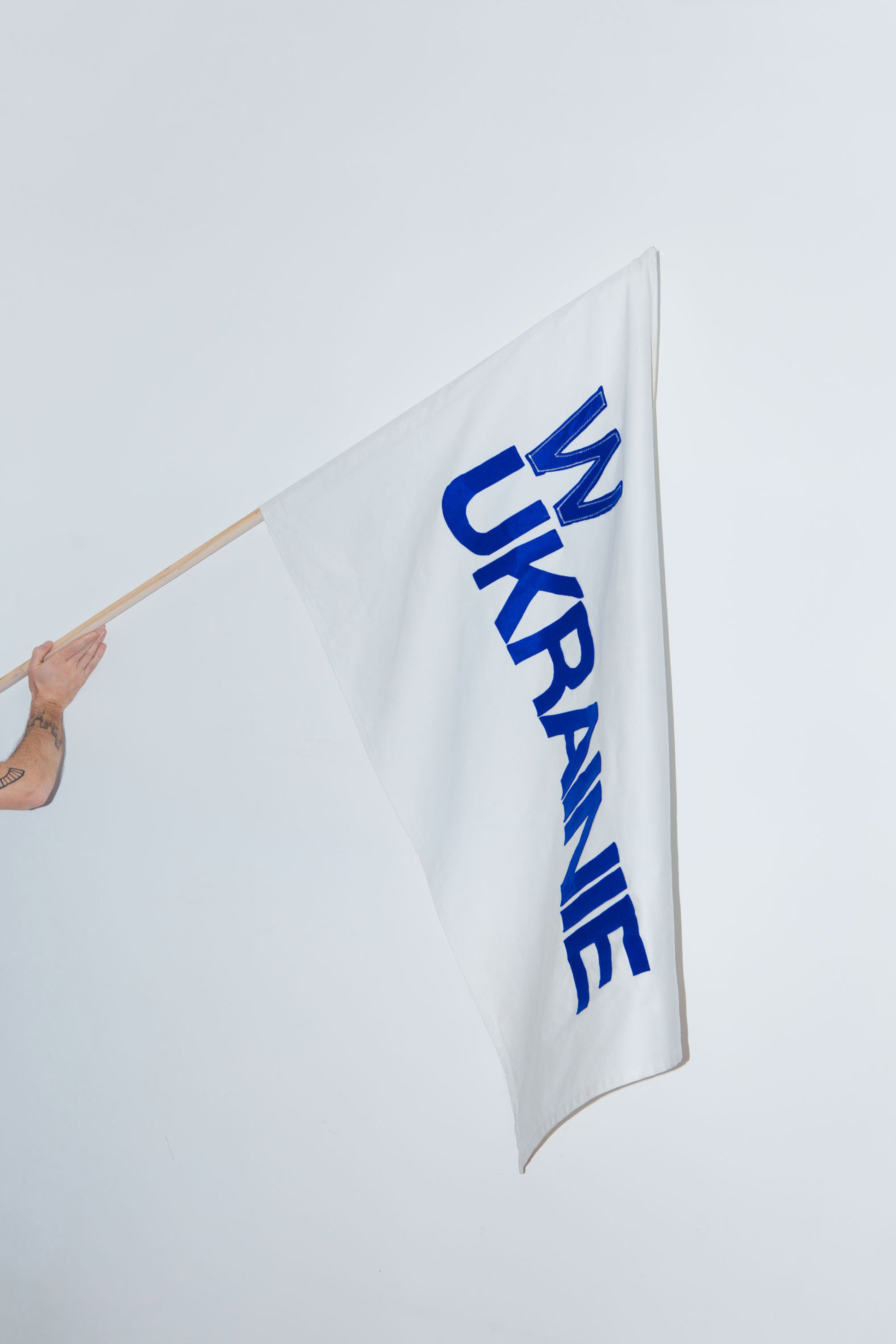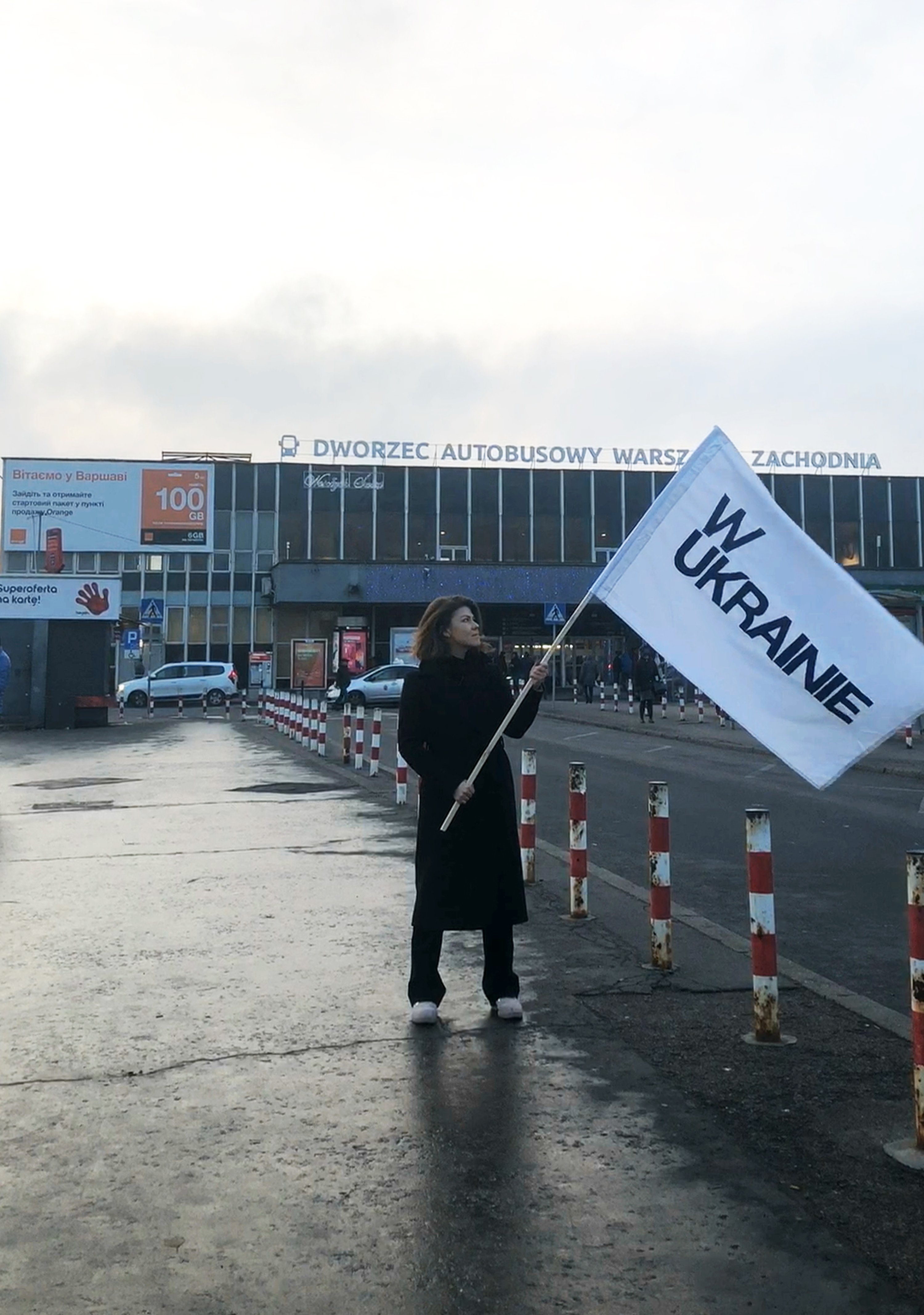Yulia Krivich
b. 1988, Dnipro, Ukraine
Photographer, curator, activist, educator. Graduate of the Faculty of Architecture at the Prydniprovska State Academy of Civil Engineering and Architecture in Dnipro and the Faculty of Media Art at the Academy of Fine Arts in Warsaw. She is the author of the photobook Presentiment (2015), published as part of Kraków Photomonth. She cofounded the curatorial and artistic collective ZA*Grupa involved in the situation of foreign artists in Poland. As part of a collective practice, she has coordinated the activity of the “Sunflower” Solidarity Community Centre at the Museum of Modern Art in Warsaw since March 2022. In her work, Krivich examines issues of identity and immigration, combining personal narratives with political themes. She is interested in issues related to language, Eastern Europe, migration and postcolonial theory. She lives and works in Warsaw.
In Ukraine
FSP ING 0249
Officially, there are over two million migrants from Ukraine living in Poland. For many years Ukrainians have come to Poland to work or study, but recently to escape the war. Some of them settle permanently, becoming new citizens. Yulia Krivich, who has lived in Poland for over 10 years herself, has drawn attention to the instances in which the Polish language uses different prepositions for “in” to refer to different countries as states (w) or as territories (na). Why does Polish use w in the case of countries like France, but na for Ukraine, Belarus or Lithuania? What linguistic tradition gives rise to this usage? (Similarly, English traditionally referred to “the Ukraine,” but has now shifted to “Ukraine.”) In 2019 Krivich held a happening at Warsaw West Station—the last stop for travellers to Warsaw from the east. Maria Beburia photographed Krivich carrying a flag reading “W Ukrainie” (“In Ukraine”) in front of the rail and bus terminal. This simple gesture provoked a nationwide debate in Poland over the historical context of the use of the preposition w or na for Ukraine, and how the character of Polish/Ukrainian relations is disclosed in the language. Russia’s invasion of Ukraine became a catalyst for changes in the Polish language, particularly as the use of the prepositions w and na assumed a new context. For Ukrainians, the choice of preposition to refer to their country in Russian-language media is a method for distinguishing propaganda from independent news reports. In July 2022 the Polish Language Council issued an opinion recognizing both forms as correct but recommending the use of w. This form expresses respect for the Ukrainian community in Poland—citizens of the independent state of Ukraine.
In Ukraine
FSP ING 0250
Officially, there are over two million migrants from Ukraine living in Poland. For many years Ukrainians have come to Poland to work or study, but recently to escape the war. Some of them settle permanently, becoming new citizens. Yulia Krivich, who has lived in Poland for over 10 years herself, has drawn attention to the instances in which the Polish language uses different prepositions for “in” to refer to different countries as states (w) or as territories (na). Why does Polish use w in the case of countries like France, but na for Ukraine, Belarus or Lithuania? What linguistic tradition gives rise to this usage? (Similarly, English traditionally referred to “the Ukraine,” but has now shifted to “Ukraine.”) In 2019 Krivich held a happening at Warsaw West Station—the last stop for travellers to Warsaw from the east. Maria Beburia photographed Krivich carrying a flag reading “W Ukrainie” (“In Ukraine”) in front of the rail and bus terminal. This simple gesture provoked a nationwide debate in Poland over the historical context of the use of the preposition w or na for Ukraine, and how the character of Polish/Ukrainian relations is disclosed in the language. Russia’s invasion of Ukraine became a catalyst for changes in the Polish language, particularly as the use of the prepositions w and na assumed a new context. For Ukrainians, the choice of preposition to refer to their country in Russian-language media is a method for distinguishing propaganda from independent news reports. In July 2022 the Polish Language Council issued an opinion recognizing both forms as correct but recommending the use of w. This form expresses respect for the Ukrainian community in Poland—citizens of the independent state of Ukraine.

